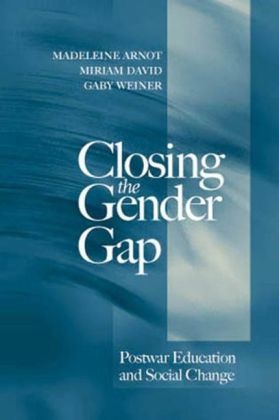Read more
Undergraduate and postgraduate students in education, sociology and gender studies, as well as the general reader with an interest in education or gender.
List of contents
Preface.
Abbreviations and Acronyms.
Part I: Refashioning Gender Relations.
1. Revisiting Gender in the 1990s.
2. Changing Gender Patterns in Education.
3. Challenging Victorian Values.
Part II: Social Policy and Education Reform.
4. Motherhood and Women s Work in the Welfare State.
5. Schooling, Teachers and Feminism.
6. Markets, Competition and Performance.
Part III: New Generations of Girls and Boys.
7. Schoolgirls and Social Change.
8. Schoolboys and Social Change.
9. Closing the Gender Gap in Education?.
Authors Note on Further Reading.
References and Bibliography.
Index.
About the author
Madeleine Arnot is Lecturer in the Sociology of Education at the University of Cambridge, and a Fellow of Jesus College.
Miriam David is Visiting Professorial Fellow at the London University Institute of Education.
Gaby Weiner is Professor of Teacher Education and Research Ume? University, Sweden.
Summary
A comprehensive and up-to-date account of the developments in British education from 1945 to the present day. Focuses on how and why the gender gap is closing in the British education system.
Report
"This book is an excellent read and I have no doubt that it will become a standard text in the sociology of education. It represents the first attempt at explaining the closing gender gap (if not the emergence of a new one!) in terms of the wider social, political, cultural and economic changes in the 1980s and 1990s." Phillip Brown, School of Social and Administrative Studies, University of Wales, Cardiff
" There are 3 main reasons why this book is worth reading many times and from different perspectives. The first is that it brings together the long-term scholarship of three of England s leading feminist scholars in education. The second is that it is an important knowledge-based intervention in an educational debate which has claimed a high profile in media and education policy circles over the 1990s and into the 2000s. The third reason is that the book s lines of argument are conceptually and empircally rich and its conclusions provocative." British Educational Research Journal

